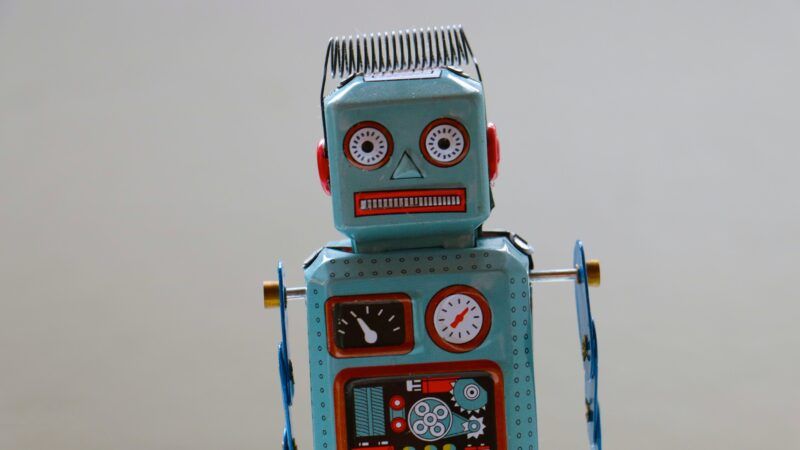In South Korea, Robots Are Taking Robots' Jobs
Our robo-worker future won't put an end to this annoying labor-policy debate.

It's a tale probably as old as labor markets: An influx of cheaper, foreign labor displaces some established workers, who seek protection from the government in the form of new restrictions on the immigrants they blame for taking their jobs.
The cycle is repeating itself right now in South Korea, with one new wrinkle: None of the workers are humans.
Executives—human ones—at some South Korean robot manufacturing firms tell the Financial Times that imported robots are starting to steal jobs from good ol' domestic androids.
"We are worried that cheap Chinese robots are dominating our market as it is difficult to compete with them on prices," one unnamed executive from "a leading local distributor of domestic robots" tells the publication. Another says that the Chinese robots are technologically less advanced than the robots South Korean firms are producing, but that the robo-immigrants are "more cost-competitive."
The robot industry is big business in South Korea, where server robots in restaurants are now fairly common and logistics firms have adopted robot workers in a variety of ways. Those changes have allowed the human workers in those industries to become much more efficient, while also offsetting a severe worker shortage in the country, Nikkei Asia reported last year.
The South Korean government has encouraged the transition of low-level, manual labor from humans to robots. The Financial Times notes that government subsidies intended to speed that transition do not differentiate between Korean-made robots and those imported from elsewhere—and when you read between the lines, that's what is actually upsetting the robot manufacturers.
Whether those subsidies make sense is probably a good question for the South Korean government to ask itself. But if they are going to exist, it makes sense for them to apply to all robots regardless of where they are made. Handing out subsidies with one hand while embracing trade protectionism with the other only ensures that one policy will constantly undermine the other.
In the meantime, the situation where lower-skilled imported robots are outcompeting the more expensive domestic robo-workers is a nearly perfect parallel of America's immigration situations. In both scenarios, the answer is not to fence off immigration (or imports) but to allow businesses to freely choose which workers to employ—whether flesh and blood or buckets of bolts, regardless of their place of birth or construction.
The evolution toward more robots taking over back-breaking, low-skilled labor is reaching America too. Unfortunately, South Korea's example suggests that it won't put an end to old debates over foreign vs. domestic labor.


Show Comments (24)